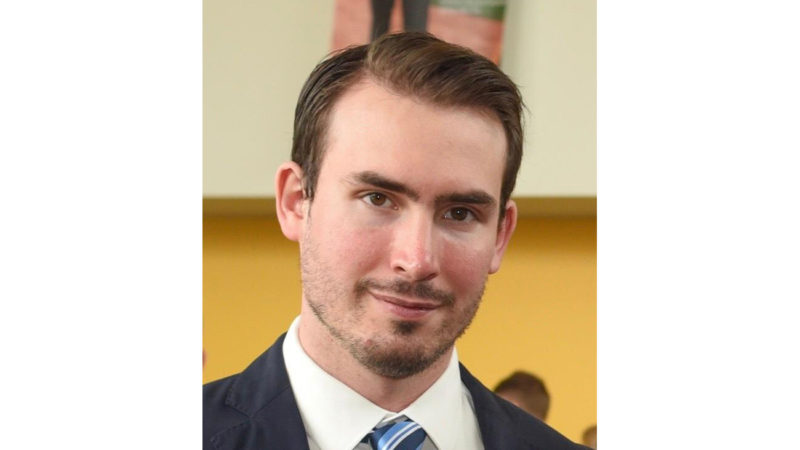Heeding the call: Hamish Haddow ’08 on practicing medicine in Maine
Partway through his second year at Bennington College, Hamish Haddow finally acknowledged what had become clear—he was being pulled in a new direction. His Waynflete teachers had instilled in him a love of composition, which had prompted him to pursue an undergraduate degree in English. But Waynflete had also taught him about taking risks, and that while it’s fine to make decisions based on the information you have, it’s also OK to look back and think, “that was the best choice at the time, but now my plans have evolved.” “It’s hard to know exactly what you want to be at age 18,” he reflects today.
Hamish left Bennington to pursue a biology degree at the University of Maine. Late in his senior year, he decided that medical school was the next step. “I only applied to a handful of schools,” he recalls. “In retrospect, I was naively confident.” He was accepted at Tufts University School of Medicine in Boston.
Tufts had recently established the “Maine Track” program, a partnership with Maine Medical Center designed to create a pipeline of new physicians to the state. “We have a big problem in Maine,” says Hamish. “We’re the oldest state in the country, and we need a steady supply of new doctors to provide services.” Some medical students believe that there is less prestige associated with practicing in Maine, and that there isn’t enough for young professionals to do here (the long winter months don’t help). New doctors who are attracted to the state tend to care less about money and more about community. “They like the smaller setting, enjoy the outdoors, and want to have the experience of being a community doctor,” Hamish says. “Portland and nearby areas have really developed an appealing image. The Maine Track program will benefit from this in the future.”
Maine Track students complete their final two years of study at Maine Medical Center, where their physician instructors are members of the Tufts faculty. The program features a unique “longitudinal integrated clerkship,” which is markedly different from the traditional approach—often seen on television—where medical students rotate through the hospital one specialty at a time. Instead, students follow individual patients through specialty areas depending on their needs. “Working with patients on a long-term basis was an exceptional approach to training,” Hamish says.
Initially drawn to the idea of global health, Hamish came to realize that he didn’t need to go far to work with underserved populations. The Maine Track program spoke to his desire to provide services in his own community. “I began to feel at odds with the idea of going out into the world when there is clearly so much that needs to be done right here,” he says. “I wound up recognizing how much I care about doing good work in the community where I grew up.”
Hamish is currently pursuing postgraduate clinical training as a psychiatry resident at Maine Medical Center. It wasn’t his initial plan. “But as I got deeper into my studies, I found myself reading about psychiatric theory in my free time and really enjoying it,” he says. “I’m fascinated by the way psychiatrists think about other people’s thoughts.” He was also attracted by the crossover between psychiatry and the humanities. “Psychiatry struck me as being closer to applied philosophy than any other branch of medicine, which really appealed to me,” he says.
Hamish hopes to balance his time between a hospital environment and an outpatient practice. “I like the intellectual stimulation that comes along with some of the particularly challenging situations you encounter at a hospital,” he says.
Hamish met his future wife Arianna at Tufts. She is also a resident at Maine Med, where she is training to be a family doctor. “One of the biggest challenges about medical school is how much it upends your normal routines,” he says. “Many the things you typically enjoy in life have to be put on hold. There is so much work to be done. At times, it feels like there is a concerted effort to grind everything else out of you!” While the intensity continued in his first year of residency—Hamish worked a 98-hour week before a recent vacation—he has been able to use some of the techniques he learned in medical school to build more time in his schedule for getting outdoors and playing music. “It’s great to start reconnecting with those things that I love outside of school,” he says.



